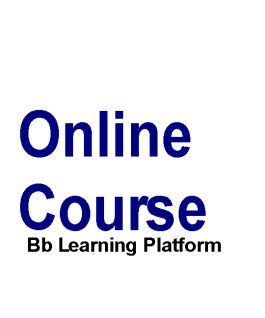LSC Accounting II (Online Course Blackboard)
1st Edition
0073338915
·
9780073338910
© 2007 | Published: November 8, 2006
This course focuses on corporate accounting. The course discusses how corporations are structured and formed, with an emphasis on corporate characteristics. Stocks, bonds, notes, purchase investments, and analysis of financial statements are included…
Read More
Receive via shipping:
- Print bound version of the complete text
Topic 1 Accounting for Corporations
Forming a Corporation
Types of Stock and Dividends
Recording Stock Transactions
Reporting Earnings and Equity
Topic 2 Accounting for Corporate Bonds
Types of Bonds and Accounting for Dividends
Issuance of Bonds
Bond Retirement
Notes Payable as a Financing Option
Topic 3 Corporate Investments
Types and Class of Investments
Accounting for Non-influential Investments
Influential Investments
Topic 4 Corporate Financial Statement Analysis
Analysis Overview
Vertical Analysis
Horizontal Analysis
Ratio Analysis
Topic 5 Statement of Cash Flows
Purpose and Importance of Statement of Cash Flows
Cash Flows from Operations
Cash Flows from Investments
Cash Flows from Financing
Topic 6 Managerial Accounting
Purpose and Nature of Managerial Accounting
Managerial Costs Concepts
Profit and Cost Centers
Departmental Operations and Income Statements
Topic 7 Manufacturing Accounting
Cost of Goods Manufactured Statement
Manufacturing Income Statement
Balance Sheet for Manufacturing Company
Manufacturing Business's Accounting Cycle
Topic 8 Job Order Accounting
Cost Accounting System
Job Order Manufacturing and Cost Accounting System
Job Order Cost Reports
Adjustment of Overhead in a Cost Accounting System
Topic 9 Process Cost Accounting
Process Cost Accounting System
Process Operations
Accounting for Job Orders
Equivalent Units of Production
Topic 10 Cost Allocation
Allocating Overhead Costs
Departmental Accounting with Cost Allocation
Allocating Indirect Expenses
Responsibility Accounting
Topic 11 Cost Analysis
Cost Behaviors
Measuring Cost Behaviors
Break-Even Analysis
Cost-Revenue Analysis
Cost-Volume-Profit Analysis
Topic 12 Master Budgets
Budgeting Process
Administrative Procedures Regarding Budgets
Master Budgets
Topic 13 Flexible Budgets and Standard Costs
Cost Behaviors in the Budgeting Process
Fixed Budget
Standard Costs
Standard Costs as a Management Tool
Flexible Budgets
Topic 14 Capital Budgets and Managerial Decisions
Capital Budgeting Without Accounting for Time Value of Money
Capital Budgeting Factoring in the Time Value of Money
Managerial Decision Making
Topic 15 Review
This course focuses on corporate accounting. The course discusses how corporations are structured and formed, with an emphasis on corporate characteristics. Stocks, bonds, notes, purchase investments, and analysis of financial statements are included, as well as an in-depth look at managerial accounting. Statements of cash flow, budgets, and budget management are also examined. After completing this course, students will be able to:
- Demonstrate knowledge of the accounting techniques used in corporations, including accounting for stock transactions.
- Discuss the various types of corporate investments, differentiating between influential and non-influential investments.
- Apply the tools of financial analysis to perform horizontal and vertical analysis.
- Calculate and interpret various financial ratios.
- Demonstrate knowledge of, and ability to prepare, a statement of cash flows.
- Define managerial accounting and understand the techniques used in cost accounting.
- Demonstrate the ability to prepare financial statements for a manufacturing company.
- Demonstrate knowledge of process cost accounting systems, including the use of equivalent units of production.
- Utilize various allocation methods to allocate overhead and indirect costs.
- Compute break-even and cost-revenue analysis values and understand how to interpret the results.
- Define a master budget and how it is used in a business.
- Discuss a flexible budget and the role of standard costs in the budgeting process.
- Describe a capital budget and discuss the role of the time value of money in the budgeting process.
- Demonstrate knowledge of the accounting techniques used in corporations, including accounting for stock transactions.
- Discuss the various types of corporate investments, differentiating between influential and non-influential investments.
- Apply the tools of financial analysis to perform horizontal and vertical analysis.
- Calculate and interpret various financial ratios.
- Demonstrate knowledge of, and ability to prepare, a statement of cash flows.
- Define managerial accounting and understand the techniques used in cost accounting.
- Demonstrate the ability to prepare financial statements for a manufacturing company.
- Demonstrate knowledge of process cost accounting systems, including the use of equivalent units of production.
- Utilize various allocation methods to allocate overhead and indirect costs.
- Compute break-even and cost-revenue analysis values and understand how to interpret the results.
- Define a master budget and how it is used in a business.
- Discuss a flexible budget and the role of standard costs in the budgeting process.
- Describe a capital budget and discuss the role of the time value of money in the budgeting process.

